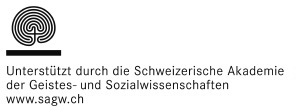The Ambivalent Role of Social Aspects in Health Promotion
DOI:
https://doi.org/10.47368/ejhc.2022.309Keywords:
health promotion, social influence, interpersonal communication, subjective norms, evidence-based health communicationAbstract
Through various mechanisms such as social comparison, social control, and social support, social networks may impose both positive and negative effects on people’s health. The purpose of this brief research report is to highlight the role of social aspects in health promotion in the context of evidence-based communication strategies to promote physical activity among older adults in Germany. Results are based on a two-study formative research project, combining 20 semi-structured interviews with a telephone survey of a representative sample of 1,001 older adults. They show that interpersonal communication is an important source of health information. However, a strong normative influence of the social network may also undermine self-determined motivation to be physically active and therefore decrease activity levels in the long-term. In contrast, feeling related to others and being able to exercise together with other people can facilitate physical activity for older adults, which underlines the ambivalent role of social aspects. Hence, (interpersonal) communication aiming at the promotion of physical activity among older adults should support their perceived autonomy by explaining potential health and social consequences of the behaviour, providing choices, and acknowledging individual barriers and facilitators such as (lack of) sports companions.
Downloads
Additional Files
Published
How to Cite
Issue
Section
License
Copyright (c) 2022 Paula Stehr, Constanze Rossmann, Tabea Kremer, Hanna Luetke Lanfer

This work is licensed under a Creative Commons Attribution 4.0 International License.
The authors agree to the following license and copyright agreement:
a. Authors retain copyright in their work.
b. Authors grant the European Journal of Health Communication the right of first publication online on the internet (on the publication platform HOPE of the Main Library of the University of Zurich).
c. The electronic contributions on the internet are distributed under the „Creative Commons Attribution 4.0 International“- License (CC BY 4.0). This license allows others to copy and redistribute the work in any medium or format, to remix, transform and build upon the material with an acknowledgement of the work's authorship and initial publication in the European Journal of Health Communication . These conditions are irrevocable. The full text of the license may be read under http://creativecommons.org/licenses/by/4.0/.
d. Authors are able to enter into separate, additional contractual arrangements for the non-exclusive distribution of their work, as long as the conditions of the CC BY 4.0 License are fulfilled and initial publication in the European Journal of Health Communication is acknowledged.
e. Authors grant the Editors commercial rights, using a publishing house, to produce hardcopy volumes of the journal for sale to libraries and individuals, as well as to integrate the manuscript, its title, and its abstract in databases, abstracting and indexing services, and other similar information services.
f. This agreement is subject to possible legal disclosure obligations.
g. This agreement is governed by Swiss law. Court of jurisdiction is Zürich.









